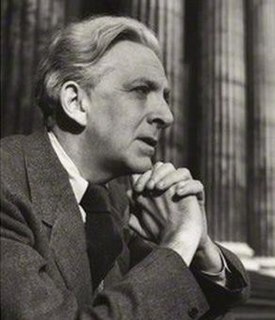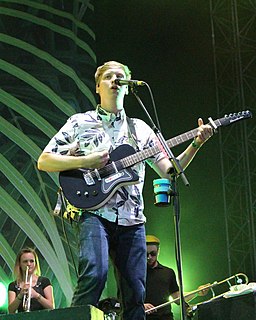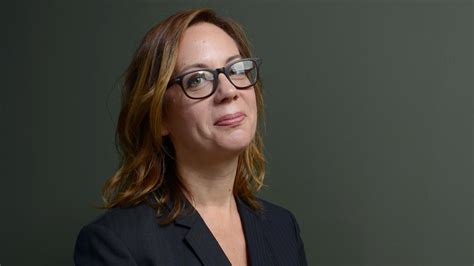A Quote by Muriel Spark
Fiction to me is a kind of parable. You have got to make up your mind it's not true. Some kind of truth emerges from it, but it's not fact.
Related Quotes
On one hand, I kind of feel like I have unlimited options right now, and obviously that's not technically true, but when you're at this place where you're just kind of dreaming up stuff, your imagination is your limit. That's where I'm at, which is great, but ultimately I think you have to make these decisions to close off some options to yourself. I think things only get done when you say, "This is the one thing I'm doing," and you kind of kill the other ones in the meantime. So I haven't done that yet, I've got to figure that out.
When I got my start, I kind of got my big break with The Princess Diaries and during the press rounds for that everyone asked me: "Did you always want to be a princess growing up?" And the truth was, no I wanted to be Catwoman. And I think a lot of women feel that way. And the fact that I am actually her is such a dream come true. It's such a pinch me moment. And the fact that I am Catwoman in Chris Nolan's Gotham to Christian Bale's Batman is unbelievably cool.
As you see, I bear some resentment and some scars from the years of anti-genre bigotry. My own fiction, which moves freely around among realism, magical realism, science fiction, fantasy of various kinds, historical fiction, young adult fiction, parable, and other subgenres, to the point where much of it is ungenrifiable, all got shoved into the Sci Fi wastebasket or labeled as kiddilit - subliterature.
Kind of the exhausting thing about doing pure comedy, or something that's broader, is you're kind of a slave to the laugh. If it's not funny, then there's not much point in doing it. The kind of über-objective is to make people laugh. You always have to have that in the back of your mind, "Eh, I've got to figure out a way to make this funny."
Kind of the exhausting thing about doing pure comedy, or something that's broader, is you're kind of a slave to the laugh. If it's not funny, then there's not much point in doing it. The kind of ueber-objective is to make people laugh. You always have to have that in the back of your mind, 'Eh, I've got to figure out a way to make this funny.'
Well, it kind of hurts when the kind of words you write And kind of turn themselves into knives And don't mind my nerve you can call it fiction 'Cause I like being submerged in your contradictions, dear 'Cause here we are, here we are Although you were biased, I love your advice Your comebacks they're quick and probably Have to do with your insecurities There's no shame in being crazy depending on how you take these Words they're paraphrasing this relationship we're staging And it's a beautiful mess, yes, it is It's like we're picking up trash in dresses
The novels I love, the ones I remember, the ones I re-read, have an empathetic human quality, or 'emotional truth'. This quality is difficult to fully define, but I always recognise it when I see it: it is different from honesty and more resilient than fact, something that exists not in the kind of fiction that explains but in the kind that shows.
When I went travelling around Europe there was the Eurovision song contest on, and I got a bit dunk and we missed our train to Budapest the next day. Anyway, when I got back I kind of realised how many songs there were about people giving up things for somebody, so I thought I'd make a song about giving up things I don't have. These elaborate things that I don't have that I could give up to somebody, and I kind of thought there was kind of some sweet sentiment in that.
I think that is one of the things that is beautiful about fiction and that you can do through drama. If I was a detective, I could make a certain version of everything we know to be exactly true. And that would have a certain kind of truth value. And there are certain other things that we know that are emotionally true.






































